Branded to Kill (????? Koroshi no rakuin) is a 1967 Japanese yakuza film directed by Seijun Suzuki and starring Joe Shishido, Koji Nanbara and Annu Mari. It was a low budget, production line number for the Nikkatsu Company, originally released in a double bill with Sh?gor? Nishimura's Burning Nature. The story follows Goro Hanada in his life as a contract killer. He falls in love with a woman named Misako, who recruits him for a seemingly impossible mission. When the mission fails, he becomes hunted by the phantom Number One Killer, whose methods threaten his sanity as much as his life.
| Branded to Kill | |
|---|---|
Original Japanese theatrical poster | |
| Directed by | Seijun Suzuki |
| Produced by | Kaneo Iwai |
| Written by | Hachiro Guryu |
| Starring |
|
| Music by | Naozumi Yamamoto |
| Cinematography | Kazue Nagatsuka |
| Edited by | Mutsuo Tanji |
| Distributed by | Nikkatsu |
Release date | June 15, 1967 |
Running time | 98 minutes |
| Country | Japan |
| Language | Japanese |
| Budget | JPY 20 million |
The studio was unhappy with the original script and called in Suzuki to rewrite and direct it at the last minute. Suzuki came up with many of his ideas the night before or on the set while filming, and welcomed ideas from his collaborators. He gave the film a satirical, anarchic and visually eclectic bent which the studio had previously warned him away from. It was a commercial and critical disappointment and Suzuki was ostensibly fired for making "movies that make no sense and no money". Suzuki successfully sued Nikkatsu with support from student groups, like-minded filmmakers and the general public and caused a major controversy through the Japanese film industry. Suzuki was blacklisted and did not make another feature film for 10 years but became a counterculture hero.
The film grew a strong following, which expanded overseas in the 1980s, and has established itself as a cult classic. Film critics and enthusiasts now regard it as an absurdist masterpiece. It has been cited as an influence by filmmakers such as Jim Jarmusch, John Woo, Chan-wook Park and Quentin Tarantino, and composer John Zorn. Thirty-four years after Branded to Kill, Suzuki filmed Pistol Opera (2001) with Nikkatsu, a loose sequel to the former. The company has also hosted two major retrospectives spotlighting his career.
Screenplay
Goro Hanada, the Japanese underworld's third-ranked hitman, and his wife, Mami, fly into Tokyo and are met by Kasuga, a formerly ranked hitman turned taxi driver. Kasuga petitions Hanada to assist him in breaking back into the profession. Hanada agrees and the three go to a club owned by the yakuza boss Michihiko Yabuhara. The two men are hired to escort a client from Sagami Beach to Nagano. After the meeting, Yabuhara covertly seduces Hanada's wife.
Hanada and Kasuga pick up a car designated for the job which unexpectedly has a corpse in the back seat. They dispose of the body, then meet the client and proceed towards their destination. En route Hanada spots an ambush. He dispatches a number of gunmen while Kasuga panics and flails about in hysterics. Foaming at the mouth, Kasuga charges an ambusher, Koh, the fourth-ranked hitman, and they kill each other. Hanada leaves the client to secure Koh's car but hears three gunshots and rushes back to find the client is safe and three additional ambushers have been shot cleanly through the forehead. At a second ambush, Hanada kills more gunmen and sets Sakura, the second-ranked hitman, on fire. Sakura madly rushes towards the client but is shot dead by him. On his way home Hanada's car breaks down. Misako, a mysterious woman with a deathwish, stops and gives him a ride. At home, he has rough sex with his wife, fueled by his obsession with sniffing boiling rice.
Yabuhara hires Hanada to kill four men, the first three being a customs officer, an ocularist and a jewellery dealer. Hanada snipes the first from behind a billboard's animatronic cigarette lighter, shoots the second from a basement up through a pipe drain when the latter leans over the sink and, ordered to finish quickly, blasts his way into the third's office and escapes on an advertising balloon. Misako then appears at his door and offers him a nearly impossible contract to kill a foreigner, which he cannot refuse having just been told the plan.
During the job a butterfly lands on the barrel of his rifle causing him to miss his target and kill an innocent bystander. Misako tells him that he will now lose his rank and be killed. Hanada makes plans to leave the country but is shot by his wife, who then sets fire to their apartment and flees. His belt buckle, however, stopped the bullet and he escapes the building.
He finds Misako and they go to her apartment. After alternating failed attempts by him to seduce her and them to kill each other. she succumbs to his advances when he promises to kill her. Afterwards, he finds he cannot as he has fallen in love with her. In a state of confusion he wanders the streets and passes out on the side of the road. The next day he finds his wife at Yabuhara's club. She tries to seduce him, then fakes hysteria and tells him Yabuhara paid her to kill him and that the three men he had killed had stolen from Yabuhara's diamond smuggling operation, and the foreigner was an investigator sent by the supplier. Unmoved, Hanada kills her, gets drunk and waits for Yabuhara to return. Yabuhara arrives already dead with a bullet hole through the centre of his forehead.
Hanada returns to Misako's apartment where a film projector has been set up. It depicts Misako bound and tortured and directs him to a breakwater, where the following day he is to be killed. Hanada submits to the demand but kills the killers instead. The former client arrives and announces himself as the legendary Number One Killer. He says he will kill Hanada but, in thanks for the work he has done, is only giving a warning at present.
Hanada holes up in Misako's apartment and Number One begins an extended siege, taunting Hanada with threatening phone calls and forbidding him to leave the apartment. Eventually, Number One moves in with the now exhausted and inebriated Hanada under the pretext that he is deciding how to kill him. They agree to a temporary truce and set times to eat, sleep and, later, to link arms everywhere they go. Number One suggests they eat out one day and then disappears during the meal.
At the apartment, Hanada finds a note and another film from Number One stating he will be waiting at a gymnasium with Misako. Hanada waits at the gymnasium but Number One does not show. As a bedraggled Hanada rises to leave, a tape recorder switches on explaining, "This is the way Number One works", he exhausts you and then kills you. Hanada puts a headband across his forehead and climbs into a boxing ring. Number One appears and shoots him. The headband stops the bullet and Hanada returns fire. Number One slumps to the ground but manages to shoot him a few times before dying. Hanada leaps and staggers around the ring declaring himself the new Number One. Misako enters the arena and, crazed, he instinctively shoots her dead, then falls from the ring.
- Joe Shishido as Goro Hanada, the Number Three Killer: a hitman with a fetish for the smell of boiling rice. He is gainfully employed by the yakuza until a butterfly lands on the barrel of his rifle during a "Devil's job". He misses his target and is marked for death—then descends into a world of alcohol and paranoia. Shishido has been called the face of Suzuki's films, owing in part to their frequent collaborations, this being among the most prominent. After middling success in Nikkatsu melodramas he underwent plastic surgery, enlarging his cheeks several sizes. He returned to tremendous success as a heavy and, soon thereafter, a star.
- Koji Nanbara as the Number One Killer: the legendary hitman whose existence remains a subject of debate. Incognito, he employs the yakuza to provide bodyguards. Later, he reappears with the intention of killing Hanada, first trapping him in an apartment, then moving in with him, before their final showdown in a public gymnasium.
- Isao Tamagawa as Michihiko Yabuhara: the yakuza boss that hires Hanada and seduces his wife. Upon the discovery that his diamond smuggling operation has been burgled, he employs Hanada to execute the guilty parties then adds him to the list when he flubs the job. His final appearance is with a bullet hole in his head.
- Annu Mari as Misako Nakajo: the femme fatale with a penchant for dead butterflies and birds. She picks Hanada up in her open top convertible when his car breaks down in the rain. Under Yabuhara's direction she enlists him to kill a foreigner. She attempts to kill Hanada but falls in love with him, which instigates her capture and use as bait by Number One. Mari has said she was experiencing suicidal urges at the time she first read the script and the character captivated her. "I loved her name, but it was her first line 'My dream is to die' that had a profound impact on me. It was like lightning."
- Mariko Ogawa as Mami Hanada: Hanada's wife who has a predilection towards walking around the house nude. Shortly after meeting Yabuhara she enters an affair with him. When her husband's career sours she attempts mariticide and flees—to be confronted later at Yabuhara's club. This was Mariko Ogawa's only film appearance.
- Hiroshi Minami as Gihei Kasuga: formerly a ranked hitman who lost his nerve and took to drinking. After introducing Hanada to Yabuhara he joins the former in a dangerous chauffeur mission. His nerves get the better of him and he experiences a short-lived mental breakdown.
The Nikkatsu Company conceived Branded to Kill as a low-budget hitman film, a subgenre of the studio's yakuza-oriented movies. Their standard B movie shooting schedule was applied, one week for pre-production, 25 days to shoot and three days for post-production. The budget was set at approximately 20 million yen. Shortly before filming began, with the release date already set, the script was deemed "inappropriate" by the head office and contract director Seijun Suzuki was brought in to do a rewrite. Studio head Ky?saku Hori told Suzuki he had had to read it twice before he understood it. Suzuki suggested they drop the script but was ordered to proceed. The rewrite was done with his frequent collaborator Takeo Kimura and six assistant directors, including Atsushi Yamatoya (who also played Killer Number Four). The eight men had worked under the joint pen name Hachiro Guryu ("Group of Eight") since the mid-1960s. Nikkatsu was building leading man Joe Shishido into a star and assigned him to the film. They specified that the script was to be written with this aim. The film also marks Shishido's first nude scene. Suzuki originally wanted Kiwako Taichi, a new talent from the famous theatre troupe Bungakuza, for the female lead but she took a part in another film. Instead, Suzuki selected Annu Mari, another new actress who had been working in Nikkatsu's music halls. In casting the role of Hanada's wife, Suzuki selected Mariko Ogawa from outside of the studio as none of the contract actresses would do nude scenes.
Suzuki did not use storyboards and disliked pre-planning. He preferred to come up with ideas either the night before or on the set as he felt that the only person who should know what is going to happen is the director. He also felt that it was sudden inspiration that made the picture. An example is the addition of the Number Three Killer's rice-sniffing habit. Suzuki explained that he wanted to present a quintessentially "Japanese" killer, "If he were Italian, he'd get turned on by macaroni, right?" Suzuki has commended Shishido on his similar drive to make the action scenes as physical and interesting as possible. In directing his actors, Suzuki let them play their roles as they saw fit and only intervened when they went "off track". For nude scenes the actors wore maebari, or adhesive strips, over their genitals in accordance with censorship practices. The film was edited in one day, a task made easy by Suzuki's method of shooting only the necessary footage. He had picked up the habit during his years working as an assistant director for Shochiku when film stock remained sparse after the war. Post-production was completed on June 14, 1967, the day before the film was released.
Like many of its yakuza film contemporaries, Branded to Kill shows the influence of the James Bond films and film noir, though the film's conventional genre basis
Watch movie Branded To Kill online on Amazon
Watch movie Branded To Kill online
Watch The Movie On PrimeKanwarlal Full HD Movie Download

Aaja Meri Jaan Full HD Movie Download
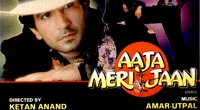
Cheluvina Chiththara Full HD Movie Download
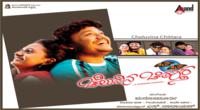
College Girl (1978) Full HD Movie Download
.jpg)
Zindagi Zindagi Full HD Movie Download
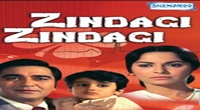
Marshal Full HD Movie Download

Anand Math Full HD Movie Download
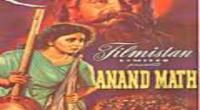
Ghar Parivar Full HD Movie Download
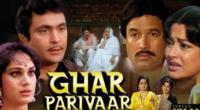
Gudia (1998) Full HD Movie Download
.jpg)
Ab Insaf Hoga Full HD Movie Download
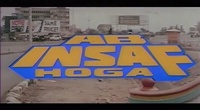
Appula Apparao Full HD Movie Download
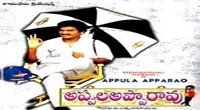
Gupt Sandesh Full HD Movie Download

Gadvasu Pindam Full HD Movie Download
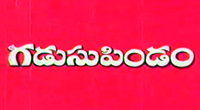
Poikkal Kudhirai Full HD Movie Download
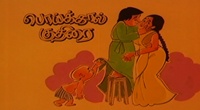
Yamapasam Full HD Movie Download
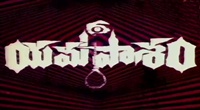
Ravanna Full HD Movie Download
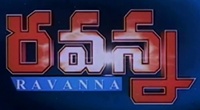
Harry Potter and the Sorcerers Stone Full HD Movie Download

Adiverukal Full HD Movie Download

Andha Oru Nimidam Full HD Movie Download
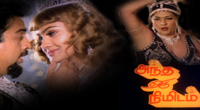
Ezhai Jaathi Full HD Movie Download
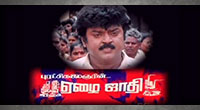
Maa Intayana katha Full HD Movie Download
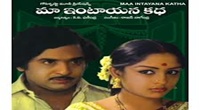
Download latest Movie from bollywood
- 1> baaghi 3
- 2> THE SKY IS PINK MOVIE FULL STORY AND REVIEW
- 3> Luka Chuppi
- 4> TO ALL THE BOYS I’VE LOVED BEFORE
- 5> Kabir Singh
- 6> Street Dancer 3D
- 7> Simmba
- 8> Gone Girl
- 9> The Girl Who Lived
- 10> Ludo
- 11> DILWALE DULHANIA LE JAYENGE
- 12> GUILTY
- 13> The Godfather
- 14> Adventures of Rusty
- 15> Sooryavanshi
- 16> Satyameva Jayate 2
- 17> Thappad
- 18> Bhool Bhulaiyaa 2
- 19> KGFChapter 2
- 20> Mardaani 2
- 21> Pinjar
- 22> Shivaji maharaj
- 23> Ek Villian 2
- 24> Hungama 2
- 25> Divergent
- 26> Mumbai Saga
- 27> The Internship
- 28> HIT (telugu)
- 29> Panga
- 30> The perfect date
- 31> 16 December
- 32> Gopala Gopala (Telugu)
- 33> Brahmastra
- 34> Gangubai Kathiawadi
- 35> Manmadhudu
- 36> Nenu local
- 37> Mahanati
- 38> Shatamanam bavathi
- 39> Lagaan
- 40> After
- 41> MOM
- 42> Shamshera
- 43> Raguvaran BTech
- 44> Khakee
- 45> The villain
- 46> OM
- 47> Mr. perfect
- 48> Bueatifull mind
- 49> Hichki
- 50> Gabbar Singh
- 51> Jogi
- 52> Before Sunrise
- 53> Before Sunset
- 54> Before Midnight
- 55> The Big Bull
- 56> Top Gun: Maverick
- 57> The Purge
- 58> The Sky is Pink
- 59> Laxmmi Bomb
- 60> Sadak 2
- 61> Sufna
- 62> Prithviraj
- 63> PK
- 64> Coolie No 1(2020)
- 65> Black Widow
- 66> Dear Zindagi
- 67> Dil Bechara
- 68> PHIR HERA PHERI
- 69> WAR
- 70> Dostana
- 71> RRR: Roudram Ranam Rudhiram
- 72> Maidan
- 73> Dabbang 3
- 74> Chhalaang
- 75> life as we know it
- 76> SherShaah
- 77> Sandeep Aur Pinky Faraar
- 78> Event Horizon
- 79> 83
- 80> Radhe: Your Most Wanted Bhai
- 81> Gunjan Saxena: The Kargil Girl
- 82> Mr India
- 83> Vivah
- 84> Anokha Bandhan
- 85> Ghost
- 86> Bhoot: Part One - The Haunted Ship
- 87> Haseen Dilruba
- 88> Laal Singh Chaddha
- 89> Qismat
- 90> Rajput
- 91> Drive
- 92> Dil Chahta Hai
- 93> Dil Ki Baazi
- 94> Dil Ka Rishta
- 95> Teesri Manzil
- 96> Dil
- 97> Love Aaj Kal
- 98> Khaali Peeli
- 99> Bunty Aur Babli 2
- 100> Atrangi Re
- 101> Gulabo Sitabo
- 102> Jodi
- 103> Suraj Pe Mangal Bhari
- 104> Deewana
- 105> Attack
- 106> Sardar Udham Singh
- 107> Toofan
- 108> THE LOVEBIRDS
- 109> Jersey
- 110> Ginny Weds Sunny
- 111> Thalaivi
- 112> Shiddat
- 113> Angels vs Zombies
- 114> Koi Mil Gya
- 115> Thank God
- 116> Bhuj: The Pride of India
- 117> Hum Aapke Hain Kaun
- 118> The Platform
- 119> Bird Box
- 120> Roohi Afzana
- 121> Torbaaz
- 122> Nikamma
- 123> World War Z
- 124> Extraction
- 125> Train to Busan
- 126> Life of Pi
- 127> SHAADI MEIN JROOR AANA
- 128> Himmat Aur Mehnat
- 129> To All The Boys: P.S. I Still Love You
- 130> Mimi
- 131> Good Newwz
- 132> Shubh Mangal Zyada Saavdhan
- 133> Raabta
- 134> Harry Potter and the Philosopher's Stone
- 135> Harry Potter and the Chamber of Secrets
- 136> Chhapaak
- 137> War of the Worlds
- 138> Harry Potter and the Prisoner of Azkaban
- 139> Harry Potter and the Goblet of Fire
- 140> MURDER MYSTERY
- 141> Shakuntala Devi
- 142> Bachchan Pandey
- 143> Jayeshbhai Jordar
- 144> Sheer Qorma
- 145> Saina
- 146> 'O' Pushpa I hate tears
- 147> Kedarnath
- 148> MS Dhoni The Untold Story
- 149> Chhichhore
- 150> Badhaai Ho
- 151> Unstoppable
- 152> Oz the Great And Powerful
- 153> The Girl on the Train
- 154> Haathi Mere Saathi 2020
- 155> The Conjuring: The Devil Made Me Do It
- 156> Gandhi Se Pehle Gandhi
- 157> The Song of Scorpions
- 158> Srimanthudu
- 159> Hello Guru Prema Kosame
- 160> Beauty and The Beast
- 161> Black Panther
- 162> Charlie and the Chocolate Factory
- 163> Bole Chudiyan
- 164> Fidaa
- 165> Duvvada Jagannadham
- 166> Bruce Lee: The Fighter
- 167> Hyper
- 168> Yaara
- 169> Red (2020)
- 170> Shivam
- 171> That Is Mahalakshmi
- 172> Nishabdham
- 173> Aashram 2020 web series
- 174> Laxmii
- 175> Mismatched
- 176> STUDENT OF THE YEAR 2
- 177> NAIL POLISH
- 178> Ramprasad Ki Tehrvi
- 179> KAAGAZ
- 180> 12 o Clock
- 181> The Power
- 182> bolo hau
- 183> Tribhanga
- 184> JAMUN
- 185> Madam Chief Minister
- 186> Maasaab
- 187> Aadhaar
- 188> Tanhaji
- 189> Bhaagi 3
- 190> Bhootnath
- 191> MALANG
- 192> Jai Mummy Di
- 193> Haathi Mere Saathi 2021
- 194> Shakeela
- 195> Unpaused
- 196> Annayya
- 197> Vamsoddharakudu
- 198> Mrugaraju
- 199> Narasimha Naidu
- 200> Sankranti
- 201> Manasu Maata Vinadhu
- 202> Anjaane
- 203> Apaharan
- 204> Bachke Rehna Re Baba
- 205> Bewafaa
- 206> Roohi
- 207> Radhe
- 208> Zindagi Khoobsoorat Hai
- 209> Yeh Mohabbat Hai
- 210> Yeh Kya Ho Raha Hai?
- 211> The Tomorrow War
- 212> DehradunDiary
- 213> Meri Shaadi Karaoo
- 214> Matruu Ki Bijlee Ka Mandola
- 215> No One Killed Jesica
- 216> Aag Ka Goola
- 217> Eight Million Dollars
- 218> Three Hundred
- 219> Cats and Dog
- 220> Decoy
- 221> Gold Rush
- 222> You Have Got Mail
- 223> Final Destination three
- 224> Tofan
- 225> Jungle
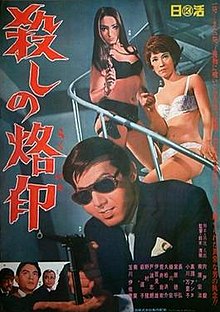 Story of movie Branded To Kill :
Story of movie Branded To Kill : 